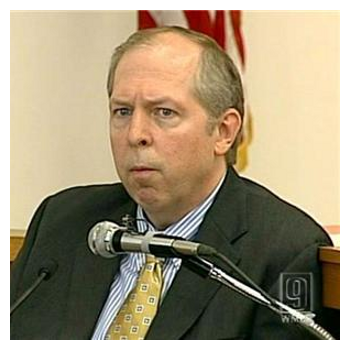
In describing what SFL is all about, I have often said that satire and parody are blunt instruments that lack nuance. Satire is good for pointing out glaring common problems but somewhat less useful when it comes to dealing with churches that don’t completely fit the mold of the stereotypical IFB mold: the “nice” churches with the pastors who don’t yell. Perhaps they wear pants to Wednesday night church and slip the occasional praise chorus (sans drums) into their worship line up. The members of these churches do seem like nice people even though they refuse to take the words “Independent Baptist” down off their sign and think that the word “fundamentalist” is at worst a misunderstood term that’s still salvageable. What are we to make of these kinder, gentler fundamentalists?
The problem is that philosophy matters. Theology matters. The way we treat the vulnerable and the broken matters very much indeed. To that end, here are three questions for the people in the nice churches.
What happens when your benevolent dictators just turn into a plain old dictators?
The nice church is usually predicated on fact that a particular pastor is “a really good guy” — which may be absolutely true. That pastor may have a heart of gold and refuse to exploit the power structure that gives him ultimate authority in the way a church is run. Here’s the secret: it won’t last forever. Either power will ultimately corrupt the man or the man will leave and be replaced with a less gracious successor.
The problem with teaching people that the ultimate responsibility for determining appropriate behavior, interpreting Scripture, and making the rules lies with a single man is that men are fallible. Without a vigorous and active system of accountability in place at every level of a church it is not a matter of if the office of the pastor will be corrupted but when. Even the nicest of guys end up not being too nice after a while. I’ve known a lot of “nice guy” pastors in fundamentalism. I haven’t known too many who were particularly good at handling dissent and confrontation when directly crossed by their own church people.
Do associations matter or don’t they?
This one is pretty straightforward: if you get into the pulpit and preach about abstaining from activities or associations with others and then go out and participate in meetings with other fundamentalists from a camp that is rife with corruption, you are a hypocrite. If it’s wrong to do charity work with Catholics because you question their orthodoxy then it is no less wrong to do revival services with churches that fully support Hyles-Anderson, BJU, or Sword of the Lord.
The documented abuses coming out of the major schools and camps of fundamentalism are astounding. They’re not hidden, they’re in the headlines and on major TV programs. Either you have dismiss every single one of them as an unrelated, isolated incident unlike all of the others, or you have to admit that the major bastions of fundamentalism are crumbling to dust — and that you’re going to associate with them anyway.
Strain at a gnat. Swallow a rapist. If you can do that your church isn’t very nice no matter how laid back the pastor may be.
One final thought on this point: for those who say that corruption, abuse, and exploitation is not common the churches in their particular camp…how would you know? With all the gag orders, with all the admonitions not to “gossip” and with all of your pastor’s information about other ministries coming from THEIR respective pastors, how exactly do you know that the claims made by ex-members and those claiming abuse at the hands of those ministries are untrue? Are your sources of information completely unbiased? Just something to think about.
Is the Bible the standard or isn’t it?
When faced with questions about their fundamentalist title and their adherence to the creeds of the past few decades (don’t drink, don’t chew, don’t make friends of those who do) fundamentalists will immediately tell you that all they do is follow the Bible.
And…”biblical principles”
And…”standards that some fundamentalist somewhere once derived from extrapolating a principle and then dabbing in a bit of personal preference and then tacking on some cultural expediency and then slathering the whole thing in pastoral authority.”
Here are a few points to ponder:
If you refuse to associate with other churches over extra-biblical matters of preference such as what Bible version they use or how much beat their music contains…that’s the opposite of nice.
If you look down on those who don’t share your personal convictions and use cutting language from your pulpit against those who don’t agree with you on those doubtful matters…that’s the opposite of nice.
If you spend a whole lot of time chasing after what some obscure commandment may have meant instead of worrying more about what Jesus plainly meant when he said “love your neighbor” and how that applies to victims of your own movement…that’s the opposite of nice.
Pleasant fundamentalists? I’m sure there are many. Decent fundamentalists pastors? I’ve known a few. It doesn’t make the movement as a whole any less dangerous or destructive. It doesn’t make all fundamentalist churches nice.


